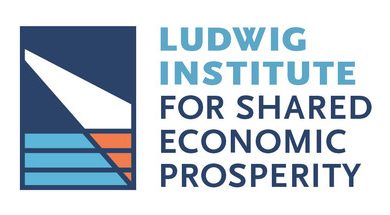The program aims to deliver better guidance for physicians and ultimately improve outcomes for pancreatic cancer patients.
BOSTON–(BUSINESS WIRE)–#NGS–Genialis, the RNA biomarker company, today announced a collaboration with Cleveland Clinic, one of the world’s leading academic medical centers, to develop AI-powered tools that help doctors identify the most effective treatment options for patients with pancreatic ductal adenocarcinoma (PDAC), the most common and deadliest form of pancreatic cancer.
The collaboration leverages the Genialis™ Supermodel, a foundation model built from one of the world’s largest and most diverse RNA-sequencing datasets to create predictive biomarker algorithms. These tools aim to help clinicians identify the most effective therapies for individual PDAC patients, optimize treatment selection, and accelerate access to novel drug strategies.
Addressing an Urgent Need
PDAC is one of the most aggressive and lethal cancers, responsible for more than 90 percent, or over 50,000, of pancreatic cancer deaths annually in the United States alone1. Despite improved survivorship in some common cancers, the Cancer Research Institute cites2 that the PDAC five-year relative survival rate remains around 9 percent, among the lowest across all cancer types.
Together, Genialis and Cleveland Clinic will work on testing Genialis Supermodel predictions across a range of therapies and combinations in the hospital’s patient-derived organoid center to quickly validate and iterate on predictive algorithms.
“For clinicians, time is critical. While standard therapies exist, we lack validated biomarkers to identify which patients are most likely to benefit from various treatment options,” said Wen Wee Ma, MD, Director, Novel Cancer Therapeutics Center, Enterprise Vice Chair, Research Cleveland Clinic Cancer Institute. “Emerging therapies, including KRAS inhibitors, offer new hope but require precise patient selection to achieve meaningful outcomes. Our goal is to bring practical, data-driven tools into the clinic that help us choose the best treatment paths for patients who currently have very few effective options.” Dr. Ma will serve in an advisory capacity and may receive research funding and royalties.
The majority of PDAC cases harbors a KRAS mutation.3
“Through our work on biomarker algorithms for KRAS inhibitors, Genialis has already made a major investment in understanding the drivers of PDAC,” said Rafael Rosengarten, Ph.D., CEO of Genialis. “Our collaboration with Cleveland Clinic aims to extend these insights to give doctors and patients better tools to combat the disease. This is an important step toward truly data-driven, personalized care in one of the most pressing areas of unmet need.”
Genialis™ krasID, powered by the Genialis Supermodel, is the first biomarker algorithm that can predict patient response and clinical benefit to KRAS inhibitors (KRASi) across tissue histology and mutation type. Genialis krasID can help guide drug development from early preclinical phases (e.g., compound/MOA differentiation and selection), to clinical trials (e.g., patient selection for clinical trials and identification of combination therapies), to market access and clinical care (e.g., development of CDx and as a clinical decision tool).
About Genialis
Genialis is creating a world where healthcare delivers the best possible outcomes for patients, families, and communities. As the RNA biomarker company, Genialis develops clinically actionable biomarkers informed by the world’s most diverse cancer data to guide precision medicine. Partnering with leading pharmaceutical and diagnostic companies, Genialis is transforming medicine through data. Learn more at www.genialis.com.
| ____________________ |
|
1 https://www.cancerresearch.org/immunotherapy-by-cancer-type/pancreatic-cancer |
|
2 https://www.cancerresearch.org/immunotherapy-by-cancer-type/pancreatic-cancer |
Contacts
Media Contacts
Andrea Vuturo
Vuturo Group for Genialis
[email protected]
+1 (415) 689-8414



